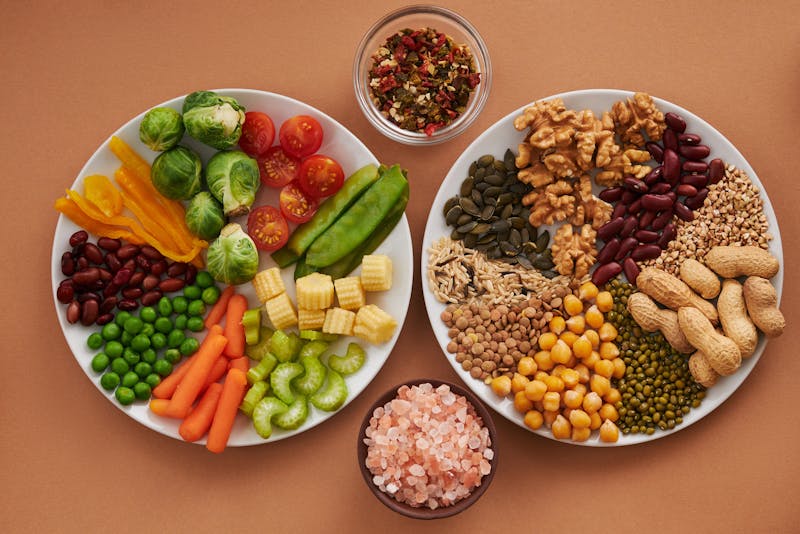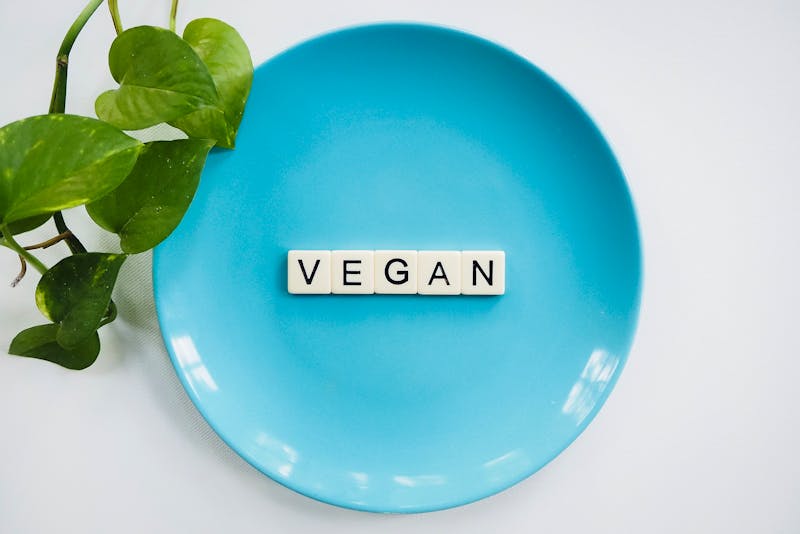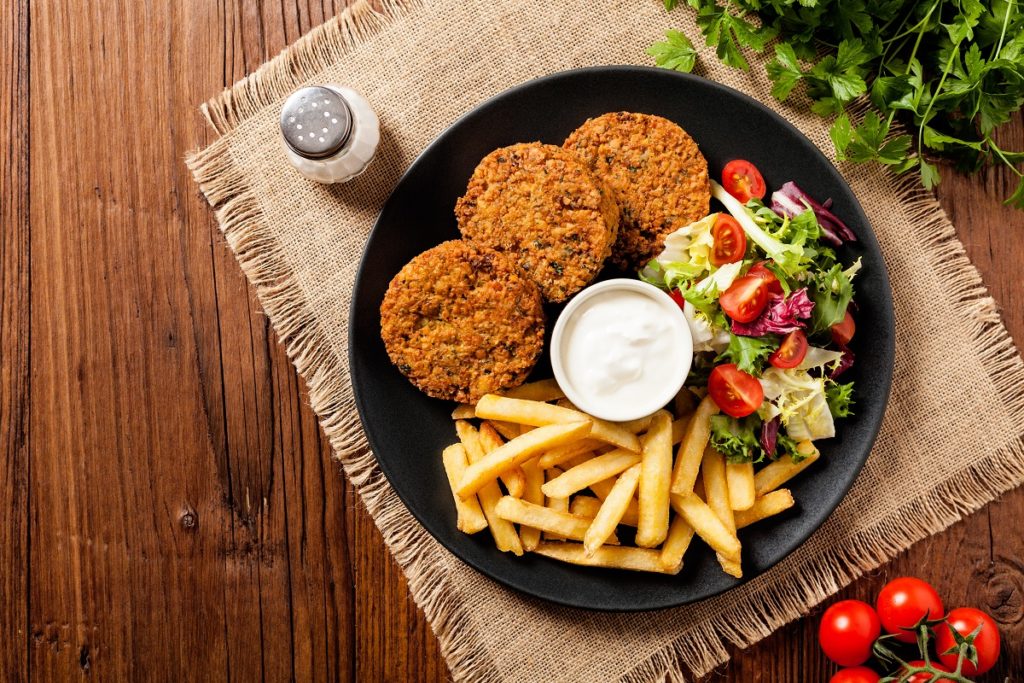- Vegan meal prepping helps beginners save time, reduce food waste, and stay consistent with healthy eating habits.
- Starting simple with basic tools, pantry essentials, and easy-to-cook ingredients makes the process manageable for anyone.
- Planning balanced meals with grains, plant-based proteins, and vegetables ensures proper nutrition throughout the week.
- Batch cooking, using versatile ingredients, and relying on kitchen appliances can significantly speed up meal prep.
- Proper storage with airtight containers and meal labeling helps maintain freshness and food safety for days.
- Preparing easy snacks like hummus, trail mix, and energy balls helps support healthy choices throughout the day.
- A simple 3-day meal prep plan provides beginners with structure and confidence to build long-term routines.
Meal prepping has become one of the most effective strategies for maintaining a healthy lifestyle, saving time during the week, and reducing stress around daily cooking. For vegans and health-conscious individuals, meal prepping offers even more benefits: it ensures nutrient balance, helps avoid last-minute unhealthy food choices, and supports a more sustainable way of eating.
If you’re new to plant-based living or simply want easier ways to stick to your goals, starting with beginner-friendly vegan meal prep ideas is a great place to begin. This guide breaks down simple, delicious, and practical options that anyone can make, even with limited kitchen experience.
Why Should You Start Vegan Meal Prepping?
Starting a vegan meal prep routine can feel intimidating at first, especially if you’re transitioning to plant-based eating or juggling a busy schedule. However, the process becomes surprisingly manageable once you understand the core benefits. Vegan meal prep helps you stay consistent with your health goals, avoid fast food, and ensure that your meals are balanced. Many beginners also enjoy the convenience of grabbing ready-made meals instead of cooking from scratch every day.
Additionally, meal prepping helps reduce food waste because you’re planning ingredients in advance and using them intentionally. It saves money by cutting down on takeout and impulse grocery purchases. With a little planning, a few containers, and a short block of weekly prep time, vegan eating becomes simpler and far more enjoyable. Whether you want to lose weight, eat cleaner, build muscle, or just simplify life, vegan meal prepping supports all these goals efficiently and affordably.
What Should Beginners Know Before Getting Started?
Before diving into vegan meal prepping, beginners should understand some essentials that make the process smoother and more enjoyable. First, it’s important to start simple. You don’t need complex recipes or specialty ingredients to create nourishing meals. Instead, begin with familiar staples like grains, vegetables, legumes, and easy-to-cook proteins. Learning to batch cook these basics will help you build confidence and reduce overwhelm.
Second, planning is crucial. Set aside a small amount of time to map out your meals for the week. Consider variety, nutritional balance, and foods that store well in the refrigerator or freezer. Lastly, invest in good storage containers. Using airtight glass or BPA-free plastic containers will help maintain freshness and prevent your meals from getting soggy. When you have the right tools and mindset in place, vegan meal prepping becomes a simple, flexible, and customizable routine.
Essential Tools and Ingredients Every Beginner Needs

When you’re new to vegan meal prep, having a basic set of tools and ingredients will help make the experience much more efficient. You don’t need expensive gadgets, but a few essentials can significantly speed up your workflow. Consider investing in items like a quality knife, cutting board, food processor, and a set of reusable containers. These tools help you chop faster, blend smoother, and store meals safely for days.
As for ingredients, build your pantry around versatile whole foods. Stock up on grains such as quinoa, brown rice, couscous, and oats. Keep canned beans, lentils, and chickpeas on hand for quick protein sources. Incorporate healthy fats like nuts, seeds, and avocados. Fresh or frozen vegetables, leafy greens, tofu, and plant-based milk are also key staples. Once you have these essentials ready, preparing flavorful and nutritious vegan meals becomes quick and enjoyable.
How to Plan a Week of Balanced Vegan Meals
Planning a week of balanced vegan meals starts with understanding nutrient distribution. Vegans need variety to hit daily recommendations for protein, iron, calcium, and essential fatty acids. Creating a simple framework can help you structure meals that are both satisfying and nutritious. For example, choose a base ingredient for each day, such as rice, pasta, quinoa, or sweet potatoes. Pair each base with a source of plant-based protein and at least two vegetables for a colorful, nutrient-rich plate.
It’s also helpful to choose meals that share ingredients to simplify shopping and avoid waste. You might use leftover roasted vegetables from lunch in a dinner stir-fry or turn extra lentils into soup. When you prepare multiple components at once, such as roasting vegetables and cooking grains simultaneously, you streamline the entire week’s cooking. With a little planning, you can create healthy meal combinations that keep your vegan lifestyle exciting and sustainable.
Vegan Meal Prep Ideas Even Beginners Can Make
This section highlights the keyword because it focuses on easy and accessible vegan meal prep ideas that beginners can follow. These recipes are designed to be simple, affordable, and delicious, allowing anyone to feel confident in the kitchen. Many of these meals rely on pantry staples and easily accessible produce, reducing the intimidation factor for new cooks.
When choosing recipes, look for dishes that use familiar flavors but incorporate healthy ingredients. You can also personalize each meal by adjusting spices, adding different vegetables, or experimenting with various plant-based proteins. The following ideas are perfect for weekly prep because they store well, pack easily, and provide balanced nutrition. With these foundational recipes, you can build a meal prep routine that fits your lifestyle and supports your health goals.
Basic Vegan Meal Prep Bowl
A vegan meal prep bowl is one of the easiest ways to start. Combine a grain, a protein, and vegetables.
You can mix and match ingredients such as:
- Quinoa or brown rice
- Roasted sweet potatoes
- Steamed broccoli
- Chickpeas or tofu
- Tahini or peanut sauce
Quick Lentil and Vegetable Stew
This hearty stew is simple and freezer-friendly. It’s a warm, comforting meal ideal for busy days.
Key ingredients:
- Red lentils
- Tomatoes
- Carrots and celery
- Spinach
- Vegetable broth
Overnight Oats for Breakfast
A perfect grab-and-go breakfast that takes less than five minutes to assemble.
Try combinations like:
- Oats, chia seeds, bananas
- Plant-based milk and peanut butter
- Frozen berries for sweetness
Vegan Pasta Salad
Easy to prepare and refreshing for lunch.
Ingredients:
- Whole-grain pasta
- Cucumbers
- Cherry tomatoes
- Olives
- Lemon-herb dressing
What are the Easiest Vegan Ingredients to Prep?
When starting out, using ingredients that are quick to cook and easy to store can make your vegan meal prep experience much smoother. Some ingredients require little to no effort, while others provide maximum nutritional value with minimal cooking time. Consider using pre-washed greens, canned legumes, and frozen vegetables. These options significantly reduce prep time while maintaining high nutrient density.
Additionally, whole grains like couscous or quinoa cook in under 20 minutes, making them perfect for beginners. Tofu and tempeh can be marinated ahead of time and cooked in large batches. Fresh fruits such as apples, grapes, and oranges require zero prep and make convenient snacks. By prioritizing easy and versatile ingredients, you can maintain a consistent vegan meal prep routine without feeling overwhelmed by complex recipes.
Time-Saving Tips for Vegan Meal Prep Beginners
Time-saving habits can make your vegan meal prep routine more manageable and enjoyable. One effective strategy is batch cooking. Prepare large quantities of grains, roasted vegetables, and plant proteins so you can mix and match meals throughout the week. Another useful habit is prepping ingredients immediately after grocery shopping. Washing your produce, chopping vegetables, and dividing ingredients into containers can save you hours later on.
It also helps to use simple, repetitive recipes. Rotating a set of meal-prep-friendly dishes keeps the routine predictable and efficient. Pre-cooking sauces such as tahini dressing or tomato-based sauces can elevate simple meals quickly. Lastly, make use of your kitchen appliances, including slow cookers, instant pots, or air fryers. These tools reduce hands-on cooking time and help beginners maintain consistency in meal preparation.
Healthy Vegan Snacks You Can Prep in Minutes
Healthy snacks are an essential part of meal prepping, especially for busy vegans who need quick energy during the day. Preparing snacks in advance prevents you from reaching for processed or sugary foods. Some vegan snacks require minimal preparation, making them ideal for beginners. For example, hummus paired with fresh vegetables provides protein, fiber, and sustained energy. You can even batch-cook chickpeas to make your own hummus for the week.
Trail mix is another excellent option. Combine nuts, seeds, and dried fruits to create a customizable snack that’s nutritious and long-lasting. For something sweeter, energy balls made from oats, peanut butter, and dates can be prepared in under 10 minutes. Keeping healthy snacks ready ensures that you stay energized throughout the day and maintain your plant-based eating habits effortlessly.
How to Store Vegan Meal Prep Safely and Keep It Fresh

Proper storage is crucial for maintaining food safety and preserving flavor. Begin by using airtight containers to prevent moisture buildup and cross-contamination. Glass containers are a great option because they are durable and maintain freshness effectively. Labeling your meals with dates helps you track their shelf life and ensures you consume them on time. Most vegan meals stay fresh in the refrigerator for three to five days, while cooked grains and legumes can last longer.
Freezing is another effective method for long-term storage. Soups, stews, and pasta sauces typically freeze well and can be reheated easily. For vegetables, blanching before freezing helps preserve texture and nutrients. Avoid storing delicate ingredients like fresh greens and avocados in advance; add them just before eating. When you store your meals correctly, you ensure both safety and convenience throughout the week.
A Sample 3-Day Beginner Vegan Meal Prep Plan
Creating a short vegan meal prep plan helps beginners build confidence. This simple three-day sample uses easy recipes and common ingredients. Each meal is balanced, nutritious, and beginner-friendly.
Day 1
- Breakfast: Overnight oats with berries
- Lunch: Quinoa bowl with roasted vegetables and tahini
- Dinner: Lentil vegetable stew
- Snack: Apple slices with almond butter
Day 2
- Breakfast: Smoothie with spinach, banana, oats, and plant milk
- Lunch: Vegan pasta salad with lemon-herb dressing
- Dinner: Tofu stir-fry with brown rice
- Snack: Trail mix with nuts and seeds
Day 3
- Breakfast: Chia pudding with fruits
- Lunch: Burrito bowl with beans, corn, greens, and salsa
- Dinner: Chickpea curry with basmati rice
- Snack: Hummus with carrot sticks
Conclusion
Starting a vegan meal prep routine does not have to be complicated or overwhelming. With simple ingredients, easy recipes, and a bit of planning, anyone can build a weekly system that supports healthier eating and a more organized lifestyle. Beginners benefit the most from focusing on versatile staples, batch cooking, and time-saving strategies that make plant-based meals both accessible and enjoyable. By preparing food ahead of time, you not only save money and reduce daily stress but also stay consistent with your health goals.
With the ideas and tips shared in this guide, you’re now ready to create a personalized vegan meal prep routine that fits seamlessly into your life, no matter how busy your schedule may be.



